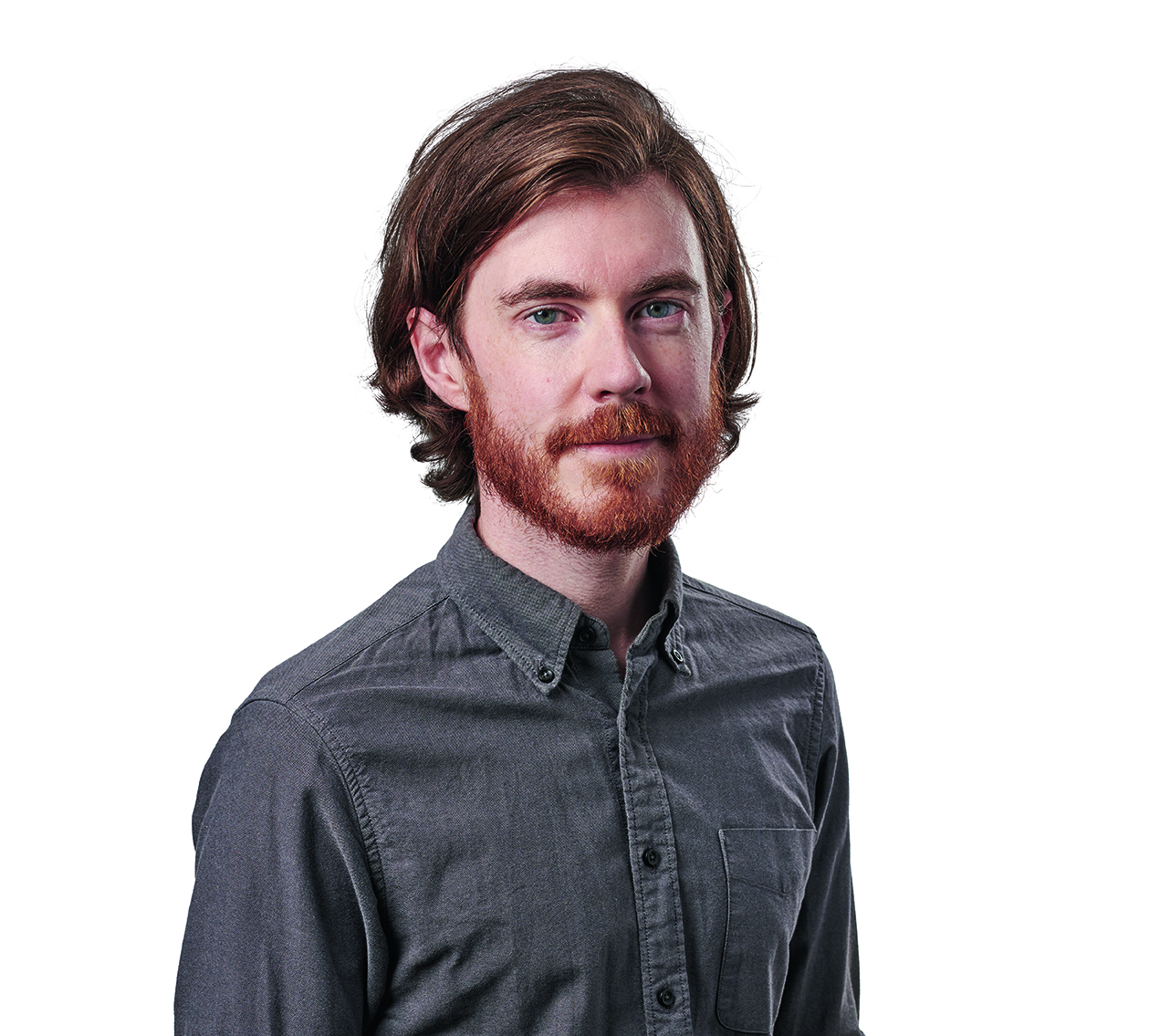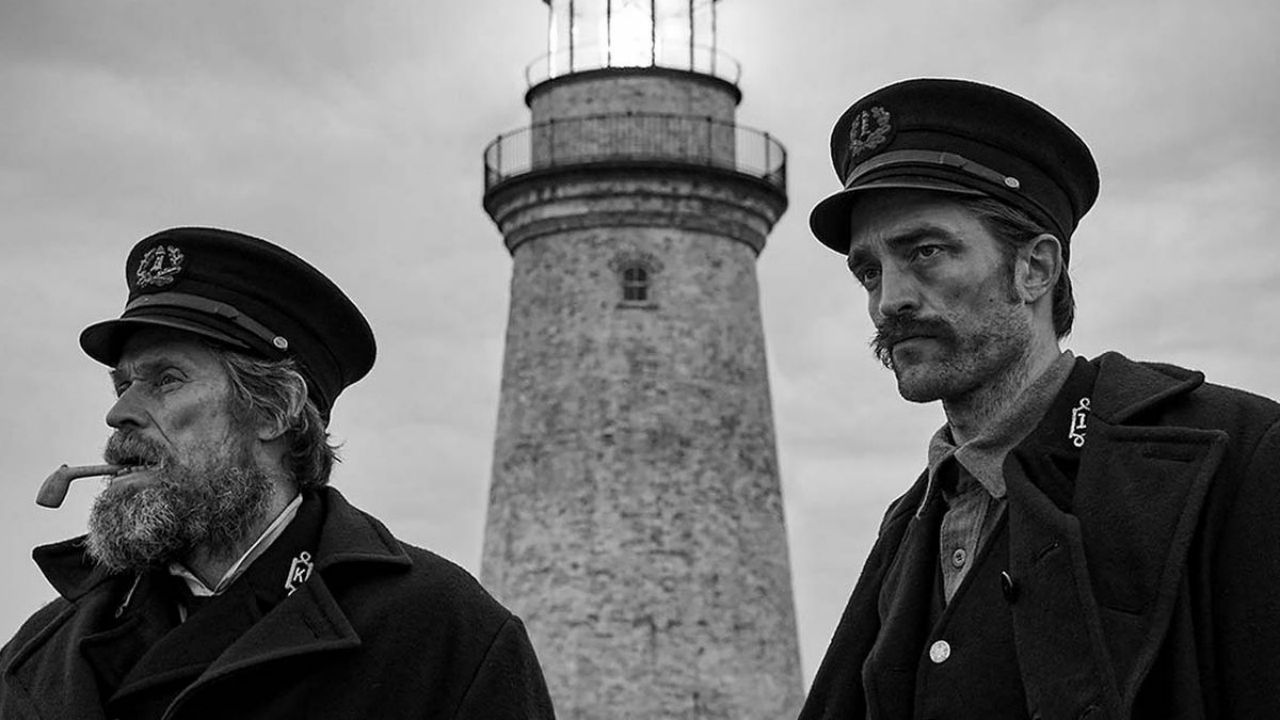GamesRadar+ Verdict
Proves The Witch was no fluke. Dafoe and Pattinson dazzle in a luminous exercise in maritime madness.
Why you can trust GamesRadar+
Back in 2015, Robert Eggers made a blistering first impression with New England horror The Witch. He makes an even stronger second one with his follow-up, an oppressively nightmarish two-hander starring Robert Pattinson and Willem Dafoe as a pair of lighthouse keepers who go mad off the mainland after a devastating storm strands them on their temporary island home. This film does for lighthouses what The Shining did for five-star hotels.
The Lighthouse is shot in exquisite, full-frame monochrome – an aspect ratio that adds to both the squirming claustrophobia and period aesthetics – with a custom orthochromatic filter that brings every pore, blemish and twitch of insanity on the stars’ faces to the fore. For a film filled with ugliness, it’s a paradoxically beautiful one.
On The Witch, Eggers immersed himself in contemporary scribblings and dialect tapes to pen the film’s period-authentic dialogue. The same is true of The Lighthouse, co-written by Eggers and his brother Max, who initially came up with the premise: a “ghost story in a lighthouse”. The pair have given Pattinson’s Ephraim Winslow the period-perfect verbiage of a Down East Maine farmer, and Dafoe’s Tom Wake a maritime poetry delivered in a voice that Winslow, at one point, describes as sounding like “a goddam parody” of a Captain Ahab voice. Only Dafoe could, effectively, play a pirate in a film this serious and get away with it.
Kraken up
The research has paid off; the dialogue here is nothing short of magnificent. It’s a bit like hearing Shakespeare for the first time - half the dialogue simply washes over you as you pick up fragments of meaning from context. But Eggers, Pattinson and Dafoe emphatically make their point where it matters, including two breath-snatchingly brilliant monologues featuring some of the most creative cursing in years.
The wordplay needs to be on point, as a great deal of The Lighthouse is simply verbal spats and drunken revelries between Winslow and Wake, their relationship blowing hot and cold depending almost exclusively on how sober they are. And it goes without saying that Dafoe and Pattinson are superb, running the gamut over the film’s two hours. Anyone still perplexed by the idea of Twilight’s Edward Cullen playing Batman need look no further for confirmation that he’ll pull it off with ease.
Dafoe’s Wake is the grizzled veteran of the lighthouse business, Pattinson’s Ephraim his latest in what may be a long line of assistants. Wake refuses to treat Winslow as his by-the-book equal, however, forbidding him from going anywhere near the light at the pinnacle of the island’s looming tower. We see glimpses of Wake illicitly basking in the heavenly glow, as though he’s absorbing some celestial energy from it. The draw of the forbidden fruit gnaws at Winslow each day as he’s forced to do menial tasks – polishing the brass, shovelling coal into the furnace and attending to the sulphurous cistern – day in, day out. Wake’s last partner, we’re told, went mad raving about “sirens and merfolk”. It isn’t long before Winslow starts having his own mystical visions (or are they?) of screeching mermaids and slithering kraken tentacles.
For Fog's Sake
Eggers’ gliding camerawork is full of portent in the first half, but as the storm intensifies, he ratchets up the ferocity like Darren Aronofsky at the height of his powers. It’s hard to imagine a more potent portrait of total isolation from civilisation in the harshest of environments. Eggers hasn’t lost his knack for an artfully composed tableau that burns into your brain with nightmarish iconography, either. Mark Korven’s score is remarkable, while the overpowering sound design includes a relentless foghorn that threatens to send viewers mad, let alone the characters.
Good job, then, that The Lighthouse, for all its serious-minded menace, is also surprisingly funny. A running gag about Wake constantly passing wind never fails to raise a smile despite being a literal fart joke, and many of the more dramatically heightened scenes are punctuated by humorous ripostes. Subsisting on nothing but Wake’s lobster for weeks leads Winslow to make a priceless declaration about what he’d do if he had a steak right now. Another comic highlight is the full-on staring contest Winslow has with an anthropomorphised (and scene-stealing) seagull.
Narratively, there are few surprising deviations – it’s a simple story superlatively told – and by keeping things a little too ambiguous Eggers leaves you with more questions that you might like. Still, this is peerless filmmaking from a director who’s emerging as one of contemporary horror’s true greats.
Want more on The Lighthouse? Then check out the Inside Total Film podcast for more of our thoughts on the film

I'm the Deputy Editor at Total Film magazine, overseeing the features section of every issue where you can read exclusive, in-depth interviews and see first-look images from the biggest films. I was previously the News Editor at sci-fi, fantasy and horror movie bible SFX. You'll find my name on news, reviews, and features covering every type of movie, from the latest French arthouse release to the biggest Hollywood blockbuster. My work has also featured in Official PlayStation Magazine and Edge.




